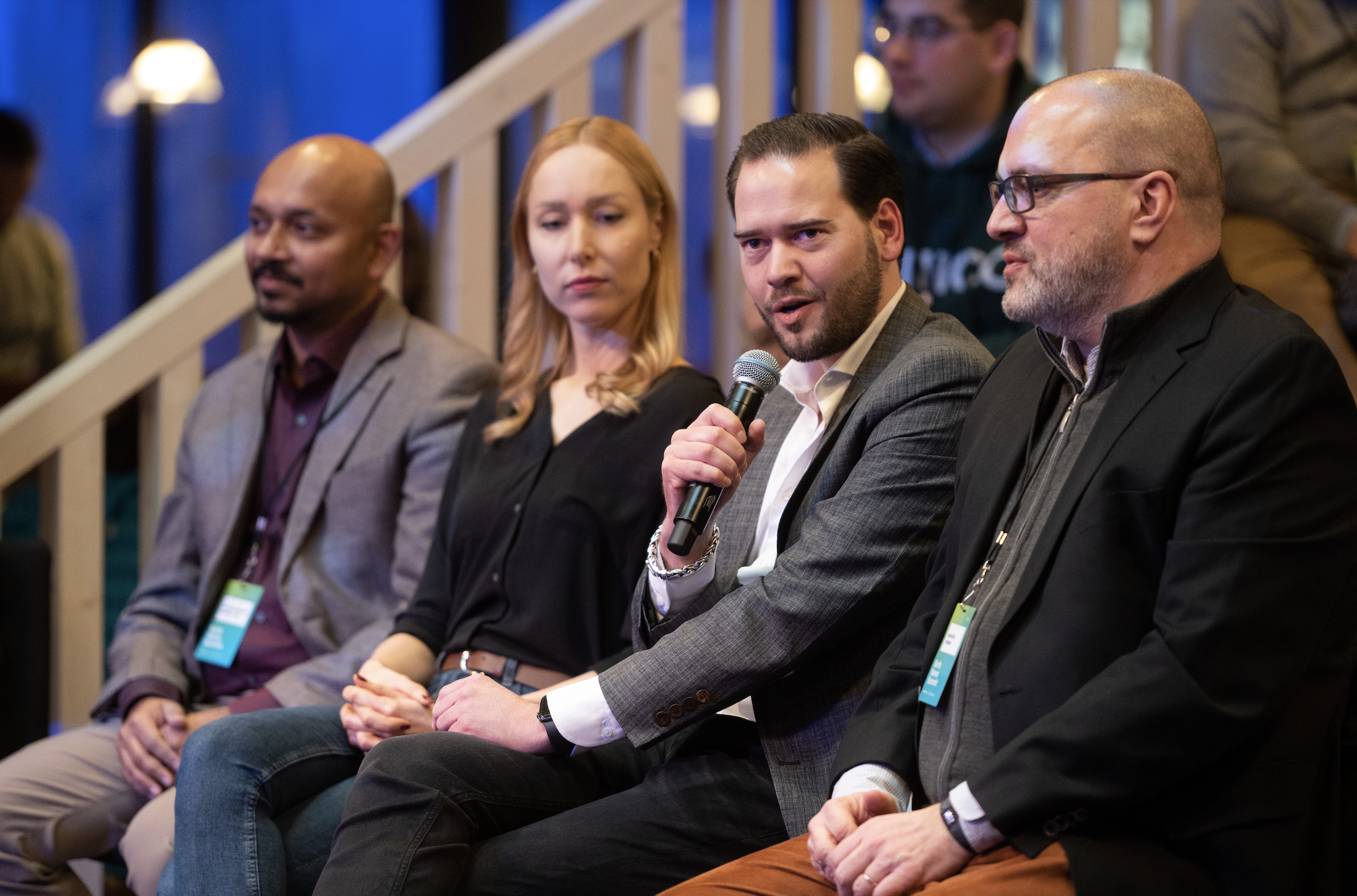As an official partner of Sixth Sense, Unknown Group supports Sixth Sense with sourcing and reaching suitable start-ups across Europe. In February 2023, it hosted the inaugural Sixth Sense Summit. We spoke to chief commercial officer, Jeroen van den Bosch about all things impact investing…
At Unknown, we are focused on fueling founders to fix the future. We’re called Unknown because we believe founders turn the world’s problems into opportunities by venturing beyond the known. The investments we make in early-stage companies range from manufacturing to energy, education, and food, but they all have one thing in common – these companies are pushing to have a positive impact on the way we lead our lives.
When we talk about impact investing, we mean supporting purpose-driven founders that are trying to solve a problem that has a societal and environmental impact. The most powerful thing that attracts us to a portfolio company is the energy and commitment of the founder and the resourcefulness to transform that commitment into solutions. Preferably, they would fall into one of our four domains: energy transition, food transition, healthcare/well-being and education. As investors, we want to see some measurable impact KPIs around these topics.
Impact investing has evolved
There’s a difference between social enterprises and impact ventures. We are very much focused on the latter. These kinds of businesses have two purposes – they have the purpose of solving a problem, but in doing so, they also have the purpose of running a sustainable business. Profit might not be their sole purpose or biggest ambition, but we firmly believe that running a sustainable business increases the impact you can make. This is one way we believe impact investing has developed over the years. What started as a focus on investing in social enterprises has become much more focused on the impact for-profit businesses can make through their success. It makes our kind of investing similar to other VCs’, but ROI is a logical consequence of the fact that we’re doing our work well, rather than the only goal for us.
Manufacturing and impact: what’s the connection?
We have a natural interest in the manufacturing space because the innovation that happens there is very cross-industry and has an impact far beyond a factory. In particular, we’re looking at how to optimize manufacturing, from the process itself to the people working on it.
One example is our portfolio company, Skelex; they’ve built a skeleton that supports employees while doing overhead work. This empowers the workforce and enables people to surpass their potential while reducing the risk of injury.
Finding the balance – measuring versus making an impact:
If companies want to focus on impact, they need to back this up with data that measures and proves their approach is working. But something we have seen is that the more complex companies make this measurement, the harder it is to actually spend time making that impact. If companies create complex measuring models with 20 or 30 variables, the measuring becomes the product itself. What we’ve tried to do with our portfolio companies is really focus on one or two essential impact KPIs, such as percentage energy saved across operations or reduction in waste materials.
KPIs like energy saved and reduction in waste materials are essential because they measure the impact the companies make in important areas. It allows us to focus on what is most important to us and the companies, rather than having our attention spread daily between 30 KPIs.
Demonstrating value – playing your part in the chain:
The second thing is that, especially within manufacturing, no single start-up can operate by itself, particularly in the UK and Europe. The market isn’t big enough, and it’s expensive and slow to take things on by yourself. You need the rest of the industry to help you scale and solve the problem. If you have a good impact measurement and a clear story, it’s easier to get buy-in from other industry players who can help and collaborate with you along the way. Manufacturers are all part of a value chain – this is something to always be mindful of. As a scaling start-up, you want to have an impact on as much of the value chain as you can.

